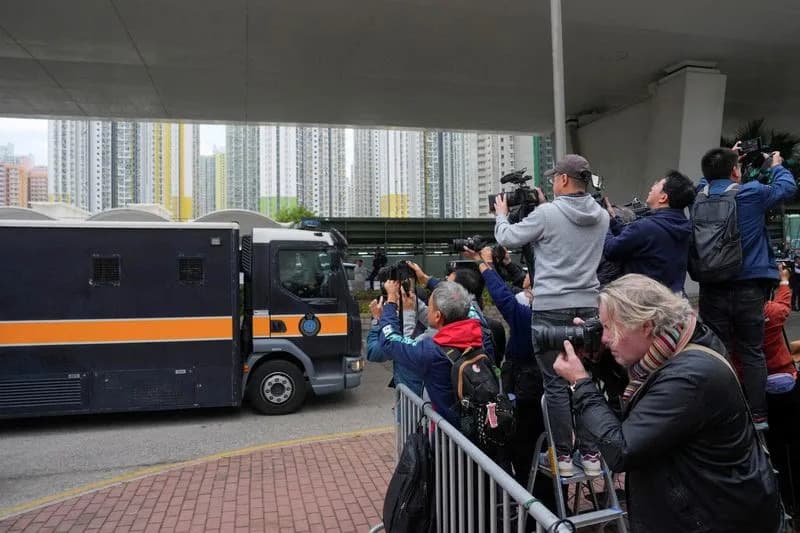Nnamdi Kanu, leader of the banned Indigenous People of Biafra (IPOB), has been sentenced to life in prison after being convicted on seven terrorism charges. The court found that his 2015 London broadcasts helped reignite separatist violence, but the judge spared him the death penalty, citing the need to temper justice with mercy. Kanu was removed from the Abuja courtroom and sentenced in absentia; his return to Nigeria in 2021 is contested by his lawyers. The verdict has heightened tensions in the south‑east and echoes the legacy of the 1967–1970 civil war.
Nnamdi Kanu jailed for life after court links London broadcasts to separatist violence

Nnamdi Kanu, leader of the proscribed Indigenous People of Biafra (IPOB), has been sentenced to life imprisonment after being found guilty on seven terrorism-related charges, ending a decade-long legal saga that has inflamed tensions in south‑east Nigeria.
Presiding Judge James Omotosho said Kanu's 2015 London-based broadcasts on Radio Biafra helped reignite separatist sentiment and were followed by deadly attacks on security forces and civilians. "His intention was quite clear, as he believed in violence," the judge said, describing the threats as "nothing but terrorist acts, which were duly carried out by his followers." The judge nevertheless declined to impose the death penalty, saying the court must "temper justice with mercy" and that "life is sacred."
Kanu was convicted on seven counts and was removed from the Abuja courtroom after reportedly shouting at the judge and refusing to cooperate with his defense team. Reports say he dismissed his lawyers and refused to call witnesses; the verdict and sentence were delivered in his absence.
Extradition dispute and security concerns
Kanu was first arrested during a 2015 visit to Nigeria, later fled to Kenya, and was returned to Nigeria in 2021 in an operation his lawyers describe as an unlawful abduction. Authorities deployed heavy security around the court during the trial amid fears of unrest in the south‑east.
IPOB has denied that it incited violence. Kanu's legal team previously argued that statements broadcast from London should not be admissible in a Nigerian court.
Human rights monitors have also raised concerns about the wider security response. Amnesty International reported in 2016 that security forces had killed at least 150 IPOB members during non‑violent gatherings since August of that year.
Historical context
The case revived memories of the Nigerian Civil War (1967–1970), when attempts to create a separate Biafran state in the Igbo‑dominated south‑east resulted in catastrophic loss of life — more than a million deaths — and long‑standing grievances that still shape politics in the region.
The sentence marks a significant moment in Nigeria's internal security and political landscape, and is likely to influence both domestic debates and international scrutiny of how separatist movements and state responses are handled.
Help us improve.




























